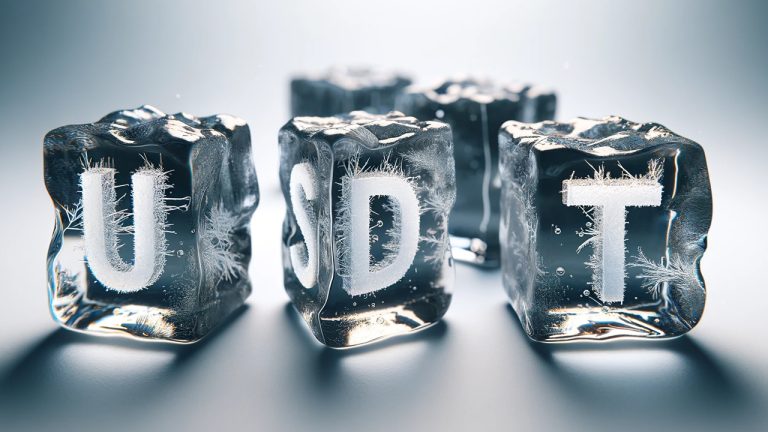Tether Implements New Stablecoin-Freezing Policy After Seizing Funds Tied to OFAC Sanctioned Entities

Tether, a leading stablecoin company in the crypto industry, has announced a significant new initiative aimed at strengthening the security of the crypto asset ecosystem. The company announced this weekend that its recent move to voluntarily freeze tether-holding wallets linked to the Office of Foreign Assets Control (OFAC) Specially Designated Nationals (SDN) List marks a proactive step towards combating illicit activities.
Tether Cracks Down on Illicit Transactions
This decision, made by Tether on December 1, 2023, supplements existing security protocols and aligns with global regulatory standards, according to the company’s announcement on the subject. Tether’s latest action includes freezing wallet addresses previously added to the SDN List, reinforcing its commitment to prevent misuse of its tokens.
Paolo Ardoino, the CEO of Tether, emphasized the strategic nature of this decision. “This strategic decision aligns with our unwavering commitment to maintaining the highest standards of safety for our global ecosystem and expanding our close working relationship with global law enforcement and regulators,” Ardoino stated.
The Tether CEO continued:
By executing voluntary wallet address freezing of new additions to the SDN List and freezing previously added addresses, we will be able to further strengthen the positive usage of stablecoin technology and promote a safer stablecoin ecosystem for all users.
Tether’s history of USDT freezing is not new. Previously, the company has blacklisted numerous addresses involved in suspicious transactions. These actions have included freezing over 30 USDT addresses that moved billions, as reported by the blockchain intelligence firm Chainargos. These measures were part of Tether’s ongoing collaboration with law enforcement, including the U.S. Department of Justice (DOJ), to combat illegal activities.
In one notable instance, Tether voluntarily froze $225 million in USDT linked to human trafficking groups in Southeast Asia. This action, hailed as the “largest-ever freeze of USDT,” showcased the company’s active role in preventing the misuse of its currency. Additionally, Tether seized $9 million in assets stolen in pig butchering scams, working closely with the DOJ and U.S. Secret Service.
Tether’s stablecoin is widely utilized, and among the 11,000-plus digital assets in the cryptocurrency market, it stands out with one of the highest levels of daily transactions, trading volumes, and settlements. In a recent development, the company’s U.S. dollar-tied token, USDT, achieved a sizable market valuation of $90 billion. Notably, the tokens operating on Ethereum and Tron networks are typically always experiencing substantial activity.
What do you think about Tether’s new asset freeze policy? Tell us in the comments section below.
from Bitcoin News https://ift.tt/3SFmc6B
Comments
Post a Comment